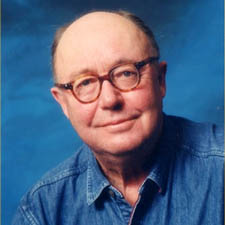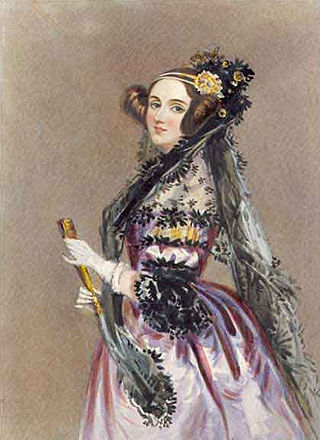
Andrew Stuart Tanenbaum, sometimes referred to by the handle ast, is an American-Dutch computer scientist and professor emeritus of computer science at the Vrije Universiteit Amsterdam in the Netherlands.
Radio-frequency identification (RFID) uses electromagnetic fields to automatically identify and track tags attached to objects. An RFID system consists of a tiny radio transponder, a radio receiver and transmitter. When triggered by an electromagnetic interrogation pulse from a nearby RFID reader device, the tag transmits digital data, usually an identifying inventory number, back to the reader. This number can be used to track inventory goods.

The Vrije Universiteit Amsterdam is a public research university in Amsterdam, Netherlands, being founded in 1880. The VU Amsterdam is one of two large, publicly funded research universities in the city, the other being the University of Amsterdam (UvA). The literal translation of the Dutch name Vrije Universiteit is "Free University". "Free" refers to independence of the university from both the State and the Dutch Reformed Church. Both within and outside the university, the institution is commonly referred to as "the VU". Although founded as a private institution, the VU has received government funding on a parity basis with public universities since 1970. The university is located on a compact urban campus in the southern Buitenveldert neighbourhood of Amsterdam and adjacent to the modern Zuidas business district.

The Vrije Universiteit Brussel is a Dutch and English-speaking research university located in Brussels, Belgium. It has four campuses: Brussels Humanities, Science and Engineering Campus, Brussels Health Campus, Brussels Technology Campus and Brussels Photonics Campus.
The Open University of the Netherlands is a Dutch institution for distance learning at university level. It is an independent government-funded university and uses a variety of methods, including written materials, the Internet, and occasional evening seminars or day sessions.
Automatic identification and data capture (AIDC) refers to the methods of automatically identifying objects, collecting data about them, and entering them directly into computer systems, without human involvement. Technologies typically considered as part of AIDC include QR codes, bar codes, radio frequency identification (RFID), biometrics, magnetic stripes, optical character recognition (OCR), smart cards, and voice recognition. AIDC is also commonly referred to as "Automatic Identification", "Auto-ID" and "Automatic Data Capture".

VIB is a research institute located in Flanders, Belgium. It was founded by the Flemish government in 1995, and became a full-fledged institute on 1 January 1996. The main objective of VIB is to strengthen the excellence of Flemish life sciences research and to turn the results into new economic growth. VIB spends almost 80% of its budget on research activities, while almost 12% is spent on technology transfer activities and stimulating the creation of new businesses, in addition VIB spends approximately 2% on socio-economic activities. VIB is member of EU-LIFE, an alliance of leading life sciences research centres in Europe.

Henri Elle Bal is a professor of computer science at the Vrije Universiteit, Amsterdam in the Netherlands. He is a well-known researcher in computer systems with a specialization in parallel computer systems, languages, and applications.

Werner Hans Peter Vogels is the chief technology officer and vice president of Amazon in charge of driving technology innovation within the company. Vogels has broad internal and external responsibilities.

Dorret I. Boomsma is a Dutch biological psychologist specializing in genetics and twin studies.

Roger Michael Needham was a British computer scientist.
Massachusetts Bay Transportation Authority v. Anderson, et al., Civil Action No. 08-11364, was a challenge brought by the Massachusetts Bay Transportation Authority (MBTA) to prevent three Massachusetts Institute of Technology (MIT) students from publicly presenting a security vulnerability they discovered in the MBTA's Charlie Card automated fare collection system. The case concerns the extent to which the disclosure of a computer security flaw is a form of free speech protected by the First Amendment to the United States Constitution.
A human microchip implant is any electronic device implanted subcutaneously (subdermally) usually via an injection. Examples include an identifying integrated circuit RFID device encased in silicate glass which is implanted in the body of a human being. This type of subdermal implant usually contains a unique ID number that can be linked to information contained in an external database, such as identity document, criminal record, medical history, medications, address book, and other potential uses.

Halleh Ghorashi is an Iranian-born anthropologist who lives in the Netherlands. From 2005 to 2012, she held the PaVEM chair in Management of Diversity and Integration in the Department of Organization Sciences at Vrije Universiteit in Amsterdam. She won the 2008 Triumph Prize.

This is a timeline of women in computing. It covers the time when women worked as "human computers" and then as programmers of physical computers. Eventually, women programmers went on to write software, develop Internet technologies and other types of programming. Women have also been involved in computer science, various related types of engineering and computer hardware.
Catharina Christina Johanna Hermina "Catrien" Bijleveld is a Dutch criminologist. She is a professor of Research Methods in Criminology at the Vrije Universiteit Amsterdam. Since August 2014 she is director of the Netherlands Institute for the Study of Crime and Law Enforcement.

Carlijn V.C. Bouten is a Dutch professor of Cell-Matrix Interactions at the department of Biomedical Engineering of Eindhoven University of Technology since 2010. She specializes in tissue engineering.
Mireille Hildebrandt is a Dutch lawyer and philosopher who works at the intersection of law and computer science. She is the Research Professor on 'Interfacing Law and Technology' at the Vrije Universiteit Brussel and holds the Chair of Smart Environments, Data Protection and the Rule of Law at the Institute for Computing and Information Sciences (iCIS) at Radboud University Nijmegen.

Beatrice A. de Graaf is a Dutch history professor at the Faculty of Humanities at Utrecht University. Her areas of expertise are terrorism, international relations & security and the modern history of Europe.
Frances Mary Theresa Brazier is a Canadian-Dutch computer scientist, known as one of the founders of NLnet, the first Internet service provider in the Netherlands and one of the first in Europe. She is a professor in Engineering Systems Foundations at the Delft University of Technology, where her research concerns multi-agent systems and participatory systems design.












